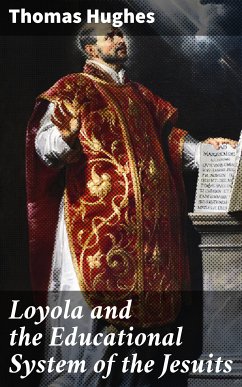In "Loyola and the Educational System of the Jesuits," Thomas Hughes explores the profound impact of St. Ignatius of Loyola's pedagogical principles on the formation of the Jesuit educational system. Written with a meticulous attention to historical context, Hughes employs a blend of narrative and analytical prose that underscores both the spiritual and intellectual dimensions of Jesuit education. He examines key elements such as the integration of moral philosophy, spirituality, and reason, reflecting the Renaissance ideals that shaped the ethos of this educational model, which remains influential in modern pedagogical discourse. Thomas Hughes, himself a product of rigorous educational traditions, was deeply interested in the intersections of religion, education, and society. His scholarly pursuits were likely influenced by his background in both the Catholic faith and an enduring respect for the transformative power of education. Hughes's insights resonate with his goal to articulate the Jesuits' distinctive approach to learning, which emphasizes critical thinking, personal reflection, and ethical development as central to student formation. This book is highly recommended for educators, historians, and anyone interested in the evolution of educational systems, particularly those rooted in spiritual and moral development. Hughes's exploration not only provides a comprehensive overview of Jesuit teachings but also serves as a timeless reminder of the potential of education to inspire character and global citizenship.
Dieser Download kann aus rechtlichen Gründen nur mit Rechnungsadresse in A, B, BG, CY, CZ, D, DK, EW, FIN, F, GR, H, IRL, I, LT, L, LR, M, NL, PL, P, R, S, SLO, SK ausgeliefert werden.
Hinweis: Dieser Artikel kann nur an eine deutsche Lieferadresse ausgeliefert werden.









